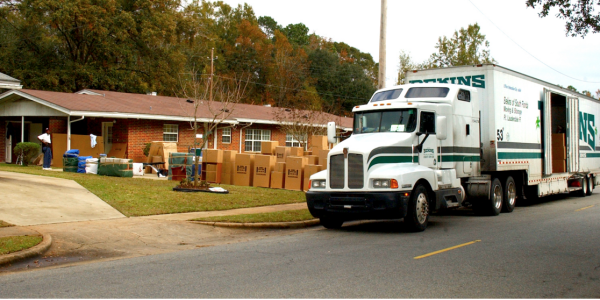

Frequent relocation is one of the realities of military life. While some families choose to live on base housing, others prefer the freedom to use their housing allowance to find a home off-post. When you change stations, it’s very important to watch out for scammers off base who may be looking to prey on unwitting service members who are trying to relocate quickly.
Here are five tips for avoiding housing scams.
Watch out for rental scams.
The internet has become an increasingly popular way to house hunt. Unfortunately, that’s given rise to an increasing number of online rental scams. Popular scams include “out of the country” renters, or “mission” renters, who are leaving their home behind for a higher calling, but will let you live in their house if you wire money. They claim they will send you keys once you wire your payment. Never send money without viewing an apartment and signing a legitimate lease.
Beware of phantom or partially fabricated rentals.
Some of the properties advertised on sites like Trulia or Zillow may be falsified. A phantom rental occurs when a property is entirely made up — as in there is nothing about the house that is real. On the other hand, there may be some rentals that are partially real and partially fake. With those, it may be a conglomeration of several attractive property pieces shown all together to make it appear better than it is. Many will have stock-looking photos. Real landlords usually don’t post glossy professional photos to online rental sites.
Related: How to avoid getting duped by a stripper »
Be careful when using sites like Craigslist.
Private listings sometimes work out really well, but there are lots of deceptive ads out there on sites like Craigslist.com. The search parameters on the site can be misleading. For example, you may be looking for a two bedroom apartment for $800, but the site doesn’t weed out options for renting one bedroom in a two bedroom apartment for that same price. But more so, people on Craigslist, especially those advertising in areas near military bases, may be looking to scam service members. Never send money in advance of seeing a place and signing a legally sound lease.
Verify before you rent, lease, or buy.
One challenge, especially if you PCS across country or to and from international locations, may be actually seeing a place before you buy or rent it. However, there are ways to make sure a place isn’t too good to be true. The Automated Housing Referral Network suggests the use of a growing group known as SCOUT. Scouts will do just that — scout a house or location if you can’t.
When you do sign a lease, use an escrow service.
There are third-party services that will hold your money until a rental begins — use them! If a landlord demands payment up front, and refuses to wait until you move in, that may be a red flag. While you are protected by your lease, you don’t necessarily want to be short on cash if a deal turns out to be a scam, and you have to wait to get refunded the money. An escrow service can ensure that doesn’t happen.